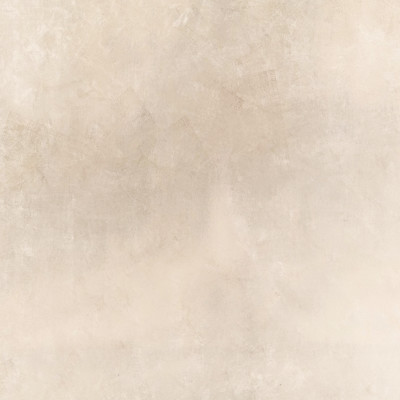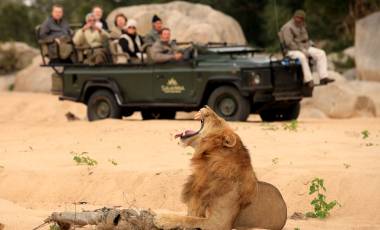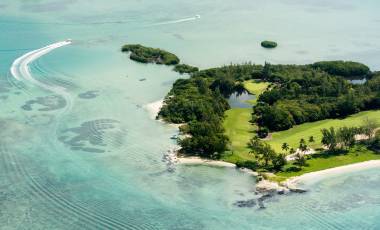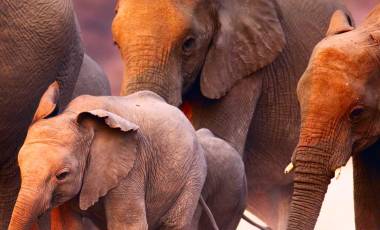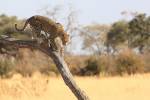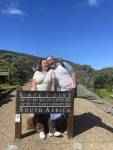Experience Custom African Safaris & Luxury Tours
From the Masai Mara’s dramatic Great Migration to the colorful coral reefs of the idyllic Seychelles, our luxury African safari tours are crafted just for you.
Gallop through Lesotho’s Highlands on a horseback adventure, uncover the Namib Desert’s haunting ghost towns, or follow in the footsteps of Rwanda’s endangered gorillas. Whatever side of the continent piques your interest, our experts have personally experienced authentic activities like these to elevate your vacation.
Your luxury African safari begins with a private consultation. Want to spot the iconic Big 5? We’ll take you to South Africa’s exclusive game reserves. Dreaming of feeling the raw power of Zimbabwe’s cascading Victoria Falls or immersing yourself in Mozambique’s tapestry of cultural architecture? We will craft every detail to perfection.
We provide English-speaking guides, 24/7 assistance during your travels, and transport so you can embrace the essence of Africa your way!

I’ll never forget the thrill of spotting a majestic lion in South Africa’s Kruger National Park, or watching a million wildebeest thundering through the Serengeti-Mara region. Africa is a paradise for wildlife lovers, and every safari adventure promises something new and exciting!
Our Most Popular Luxury African Tours
Our Guests Love Our Custom-Made Trips to Africa
The Enchanting Difference
Our Insider Tips For Planning Luxury African Vacations

Kenya and South Africa, with their world-famous national parks, are fantastic choices for an unforgettable African safari. If you’re looking to explore the continent like few others do, I recommend gorilla trekking in Uganda or Rwanda!
Be enchanted by some of the most awe-inspiring spectacles on earth on this bespoke Africa safari vacation. Three iconic destinations await you on this trip: the Masai Mara, a vast golden savannah that has inspired classic African safari dreams, Volcanoes National Park in Rwanda where you can come face to face with endangered mountain gorillas,…

Planning Your Luxury African Safari Vacation With Our Experts
Experience a luxury safari in Africa with our expertly curated tours tailored to your unique desires and preferences.
Our AFRICA destination experts have:
100+
trips planned
98%
SATISFIED GUESTS
30+
years experience
- Call 1 888 263 2574 or fill out the inquiry form
- We will call you and discuss your interests and needs
- We will create a unique trip and customize it until you’re satisfied
- Book your trip, and we’ll take care of the rest

Africa Trips: Your Lowdown On The Great Migration
Listen. If you are still with a wide open ear tipped towards the sweeping and never-ending Savannah that lays before you then sounds that were not caught before will suddenly lift your heart into a steadier pace. Then you are off in the jeep, with dust billows of the dirt tracks trying to catch up…
Read PostEssential Information for Our Luxury Safaris to Africa
The cost of guided African safari tours can vary depending on many aspects. Our expert travel consultants completely customize each trip to match your specific requirements and budget. Our private African safaris usually start from $5,000 per person and exclude flights.
Yes. When you travel with us, your luxury vacation to Africa is carried out safely. We ensure our accommodations and vehicles meet high health and safety standards, and our licensed local guides strictly follow wildlife viewing regulations.
The best time to visit Africa for a safari depends on where you visit on the continent. Keep the following in mind while planning your trip:
- Central Africa (Congo, Gabon, Chad) – June to September.
- North Africa (Egypt, Morocco, Tunisia) – September and October
- East Africa (Kenya, Tanzania, Rwanda, and Uganda) – June to October
- Southern Africa (South Africa, Botswana, Zimbabwe, Zambia, and Namibia) – May to October
When booking private African safari tours, you can expect an unforgettable experience with lavish accommodations, stunning views, and exciting activities. From arrival to departure, we take care of every detail. Each private African safari experience is tailored to your interests to immerse yourself fully in Africa’s breathtaking landscapes and wildlife.
An African safari offers a diverse range of fantastic activities and experiences. The continent promises a rich array of experiences that connect you with nature and diverse cultures. Learn more about some of Africa’s best things to do from our experts.

Your Dream Africa Vacation, Our Expertise
Explore OUR LUXURY AFRICA VACATIONsThis page was contributed to by our Africa Destination Experts, Anna Thomas and Alison Felfoldi.
